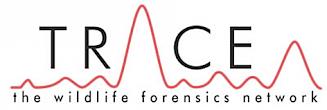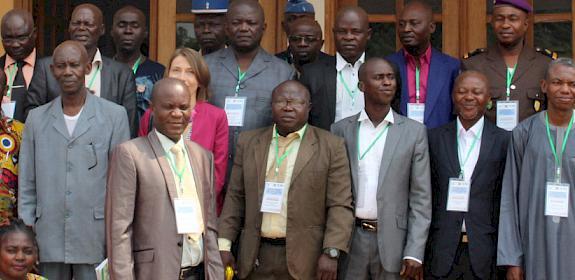New wildlife crime lab to help catch traffickers in Malawi
Wildlife forensic evidence lends a huge advantage in seeing successful prosecutions of wildlife criminals. As a relatively new, expanding field of science in Africa, the founding of Malawi’s first wildlife crime laboratory is a major step forward in the fight against this threat.
Edinburgh-based TRACE Wildlife Forensics Network, working with TRAFFIC, has helped develop Malawi’s first wildlife forensic lab and is helping train scientists in the global fight against wildlife traffickers.
The new facility, which was made possible thanks to funding from players of People’s Postcode Lottery, will see the UK team sharing their world-leading knowledge of the latest evidence-collection and analysis techniques along with training local scientists on the ground to help prosecute offenders.

TRAFFIC and TRACE have worked together on the provision of forensic expertise since 2013. Everything pivots around evidence collection and its presentation in court, and TRACE supports labs to do this. These are critical components if we want a court case to go through the system and be prosecuted accordingly."
Stephanie Pendry, Project Manager and Senior Advisor at TRAFFIC.
The TRACE team of 16 works across the globe to support countries in processing forensic evidence, from crime scene to courtroom.
According to the United Nations wildlife crime database, nearly 6,000 species – millions of animals - were seized between 1999-2019, including not only mammals but reptiles, corals, birds, and fish, and suspected traffickers of 150 nationalities have been identified.
In Malawi, antelope and pangolin are some of the animals most at risk. Wildlife rangers and investigators in the country have always depended on overseas laboratories, which presented multiple challenges, such as evidence being rejected in court.
But the Malawi lab is a huge step forward.
It is hugely challenging work but with the support and collaboration of multiple partners including local governments, wildlife rangers, laboratories, and local organisations such as Lilongwe Wildlife Trust, alongside TRAFFIC and Postcode Lottery players, we are starting to see impact in countries like Malawi."
Professor Rob Ogden, a Conservation Scientist at TRACE.
We are now able to get to the kingpins, not only those who are sent by them. And that alone has sent a big signal in the wildlife crime networks."
Brighton Kumchedwa, Director of National Parks and Wildlife in Malawi

The partnership operates across four key stages:
1. Crime Scene Investigation: Identifying, collecting, and securing evidence at the scene, from poaching incidents to vehicle seizures.
2. Evidence Management: Ensuring the chain of custody is secure from the moment evidence is collected, preventing any tampering or interference.
3. Forensic Analysis: Examining the evidence in detail to understand its origin and nature, which is crucial for building a case.
4. Effective Court Presentation: Ensuring that forensic reports are presented effectively in court, leaving no room for doubt.
Wildlife rangers in parks and sanctuaries face a round-the-clock battle to snare the perpetrators of illegal wild species trade. Earlier this year, wildlife conservationists around the world were given a sobering reminder of the task at hand, with the discovery of body parts belonging to a pangolin species that no one knew existed.
The mammal’s scales - millions of which are trafficked each year for supposed medicinal use - were confiscated in Hong Kong, and following an investigation, they were identified as coming from a pangolin species that was previously unknown to science.
Since 2018, players of People’s Postcode Lottery have raised £1 million for the work of TRACE and TRAFFIC International.
“To save wildlife, traffickers must be caught. To do this, we need better training for crime investigators, we need to improve the wildlife forensic labs and raise awareness on the important role of forensics, because it provides strong evidence in the courts.
“Our players have raised over £1.2 billion to support thousands of charities including causes that keep our wildlife safe.” Laura Chow, Head of Charities at People’s Postcode Lottery
About TRACE Wildlife Forensic Network

TRACE Wildlife Forensics Network is an international NGO, based in Edinburgh, that aims to promote the use of forensic science in biodiversity conservation and the investigation of wildlife crime. The TRACE network brings together forensic scientists and enforcement agencies to exchange information on the latest challenges facing wildlife law enforcement and modern techniques for tackling them.www.tracenetwork.org
Professor Rob Ogden is Director of TRACE, and Chair in Conservation Science at the University of Edinburgh, where he holds the positions of Director of Conservation Science and Head of Conservation Genetics at the Veterinary School and the Roslin Institute.
About the People's Postcode Lottery

People's Postcode Lottery manages multiple charity lotteries (also known as society lotteries). Players play with their postcodes to win cash prizes, while raising money for charities and good causes across Great Britain and globally. A minimum of 32% goes directly to charities and players have raised £282 million to date for good causes across the country. For further information visit: www.postcodelottery.co.uk





